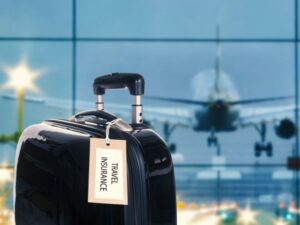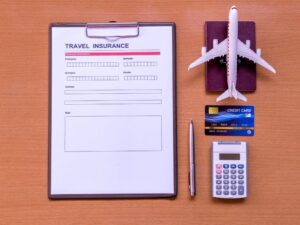Embarking on a safari adventure is exciting. The thrill of exploring untamed landscapes and observing wildlife is unmatched. However, with the excitement comes the need to prepare for unexpected situations. This is where travel insurance becomes essential. Whether you’re heading to South Africa, Botswana, or Namibia, having the right coverage can make all the difference. In this blog, we’ll guide you through the key travel insurance tips for safari trips.
Why Travel Insurance is Essential for Safaris
Safari trips involve unique challenges. Unlike a typical city break, safaris take you into remote areas. You’ll encounter wildlife, rugged terrains, and sometimes unpredictable weather. These factors make travel insurance a must-have. It provides a safety net for medical emergencies, trip cancellations, and even lost luggage.

For example, imagine falling ill in a remote game reserve. Without insurance, medical evacuation can be extremely costly. Similarly, a delayed flight could mean missing your safari, and with no refund policy, it can lead to financial loss.
Having travel insurance ensures peace of mind, allowing you to enjoy your safari without unnecessary worries.
1. Choose Travel Insurance Comprehensive Coverage
When selecting a policy, ensure it’s tailored for safari adventures. A basic policy might not cover activities like game drives or walking safaris. Look for comprehensive travel insurance that includes:
- Medical Expenses and Evacuation: Injuries or illnesses in remote areas may require airlifts or advanced treatment.
- Trip Cancellations: Safaris often involve prepaid bookings. Coverage for cancellations protects you from losing money.
- Lost or Delayed Luggage: Safaris require specialized gear. If your luggage is delayed or lost, you’ll need reimbursement to replace essentials.
- Adventure Activities: Ensure the policy covers safari-specific activities, including guided walks or camping in the wilderness.
2. Consider Medical Coverage Travel Assistance Plan
Healthcare costs can be steep, especially if evacuation is necessary. Check the policy’s medical coverage limits. For safari trips, it’s recommended to have coverage of at least $100,000 for medical expenses. Some policies even offer unlimited evacuation coverage, which is ideal for remote destinations.
Additionally, ensure your insurance covers injuries caused by wildlife encounters. While rare, accidents with animals like elephants or buffalo can happen.
3. Include Trip Cancellation Insurance
A safari trip involves extensive planning and upfront payments. From luxury lodges to guided tours, most bookings are non-refundable. If you need to cancel due to illness, injury, or unexpected events, trip cancellation insurance ensures you get reimbursed.
Pro tip: Check if the policy covers cancellation for any reason (CFAR). This feature allows you to cancel for reasons not typically covered, such as a change in plans.
4. Understand Exclusions in Your Travel Insurance
Travel insurance policies often have exclusions. For instance, injuries caused by risky behaviors or activities done without a licensed guide may not be covered. Similarly, some policies exclude pre-existing medical conditions unless you declare them upfront.
To avoid surprises, read the fine print carefully. If anything is unclear, ask your insurer for clarification.
5. Protect Your Belongings
On safari, you’ll likely carry valuable equipment like cameras, binoculars, and travel gear. Travel insurance often includes coverage for lost, stolen, or damaged items. However, there are limits.
Check the individual item limit on your policy. If your equipment exceeds this limit, consider purchasing additional coverage.
For example, if you’re traveling with a $5,000 camera but the policy covers only $2,000 per item, you’ll need to insure the camera separately.
6. Don’t Forget Emergency Assistance
Emergency assistance is crucial for safaris. Ensure your travel insurance includes 24/7 assistance. In case of an emergency, you’ll have access to a helpline for support.
This feature is particularly useful for:
- Coordinating medical evacuations.
- Arranging alternate travel plans if flights are canceled.
- Getting assistance with lost documents or passports.
7. Consider Travel Delay Coverage
Safari itineraries often depend on flights and transfers. A delayed or canceled flight can disrupt your schedule significantly. Travel insurance with delay coverage helps you recover additional costs, such as extra nights in a hotel or missed safari activities.
Example: If your connecting flight to Botswana is delayed, your insurance can cover expenses like food, accommodation, and transportation.
8. Include COVID-19 Coverage in Travel Insurance
The pandemic has changed travel planning. Many travel insurance policies now include COVID-19 coverage. This typically covers:
- Medical treatment if you test positive while traveling.
- Trip cancellations due to a positive test result before departure.
- Quarantine expenses if you’re required to isolate during your trip.
When selecting a policy, ensure it includes pandemic-related coverage.
9. Compare Policies and Providers
Not all travel insurance policies are the same. Before purchasing, compare providers. Look for policies that offer safari-specific coverage, high customer ratings, and responsive support.
Some popular travel insurance providers for safari trips include:
- World Nomads
- Allianz Travel Insurance
- IMG Global
Use comparison websites to evaluate costs and benefits. Choose the one that aligns with your needs and budget.
10. Purchase Insurance Early
It’s best to purchase travel insurance as soon as you book your safari. Early coverage protects you from unexpected cancellations or changes. For example, if you fall ill before the trip, you can claim cancellation benefits.
Delaying insurance purchase increases the risk of losing coverage for certain events.
11. Keep Policy Details Accessible
Once you’ve purchased travel insurance, store the details in multiple places. Keep a printed copy in your luggage and a digital copy on your phone. Share the policy information with a trusted friend or family member in case of emergencies.
12. Check Country-Specific Requirements
Some safari destinations have specific travel insurance requirements. For instance, South Africa requires proof of medical coverage for visa applications. Research the regulations of your safari destination and ensure your policy meets them.
13. Travel Insurance: Stay Informed on Risks
Safari destinations may have unique risks, such as wildlife encounters, insect-borne diseases, or political unrest. Choose a policy that addresses these concerns. For example, malaria is common in some regions. Check if your insurance covers medical treatment for tropical diseases.
Final Thoughts
A safari is an unforgettable adventure. However, unexpected situations can arise. By investing in travel insurance, you protect yourself from financial losses, medical emergencies, and other disruptions.
To recap, ensure your policy includes comprehensive coverage, trip cancellations, medical evacuation, and emergency assistance. Compare providers, understand exclusions, and purchase insurance early. With the right policy in place, you can focus on enjoying the breathtaking beauty of Africa’s wilderness.
Travel smart, stay safe, and make the most of your safari experience!
Need Help?
If you have questions about selecting the best travel insurance for your safari, reach out to an expert. Many safari tour companies, including Knap Tours, can guide you to trusted providers. Safe travels!



